In the evolving narrative of modern medicine, the chapter on medical cannabis is one marked by profound shifts in perception and practice. As the green wave of cannabis reform sweeps across the globe, the medical community stands at the forefront of a paradigmatic shift, exploring the depths of cannabis’s therapeutic potential. Amid this transformative era, comparative studies on cannabis versus conventional medications have emerged as pivotal in charting the course towards an integrated, evidence-based approach to healthcare. This exploration delves into the heart of this groundbreaking research, unveiling the promise and challenges of integrating medical cannabis into the tapestry of traditional treatment modalities.
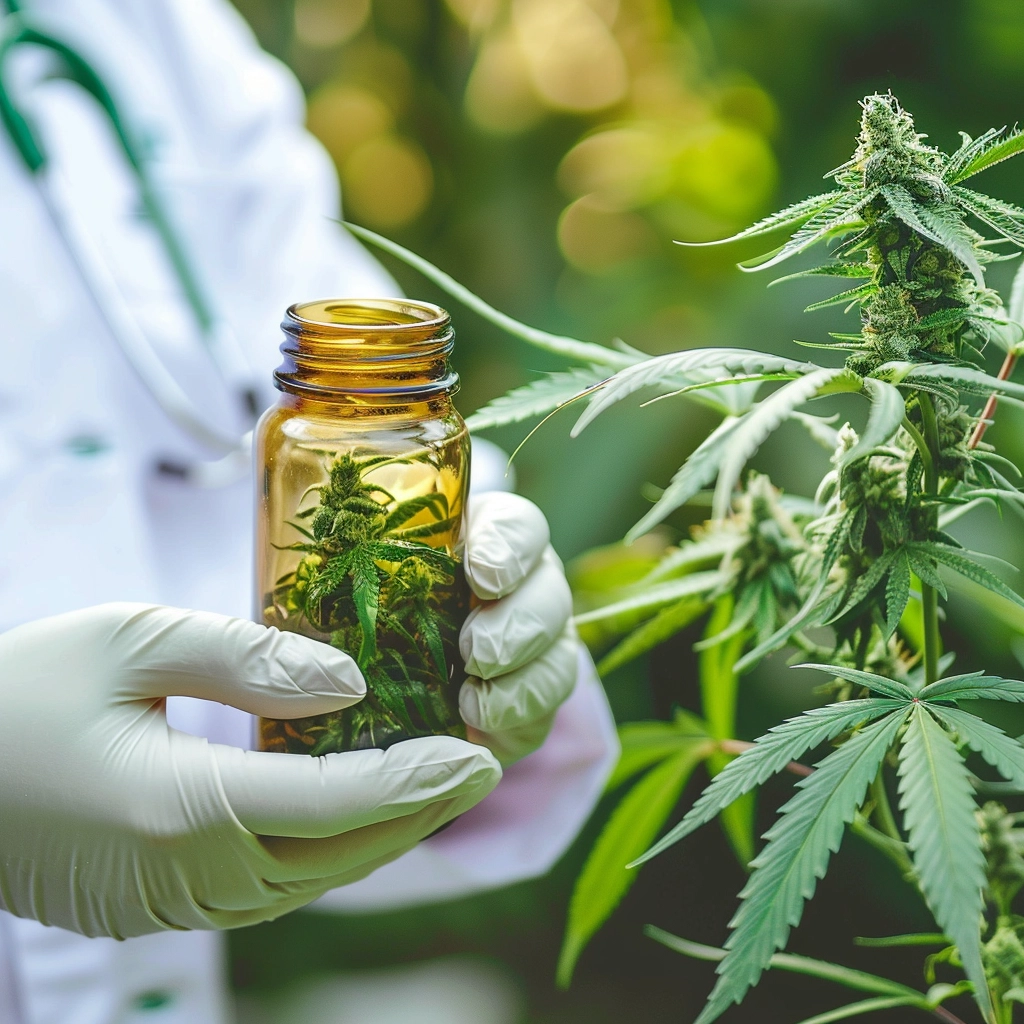
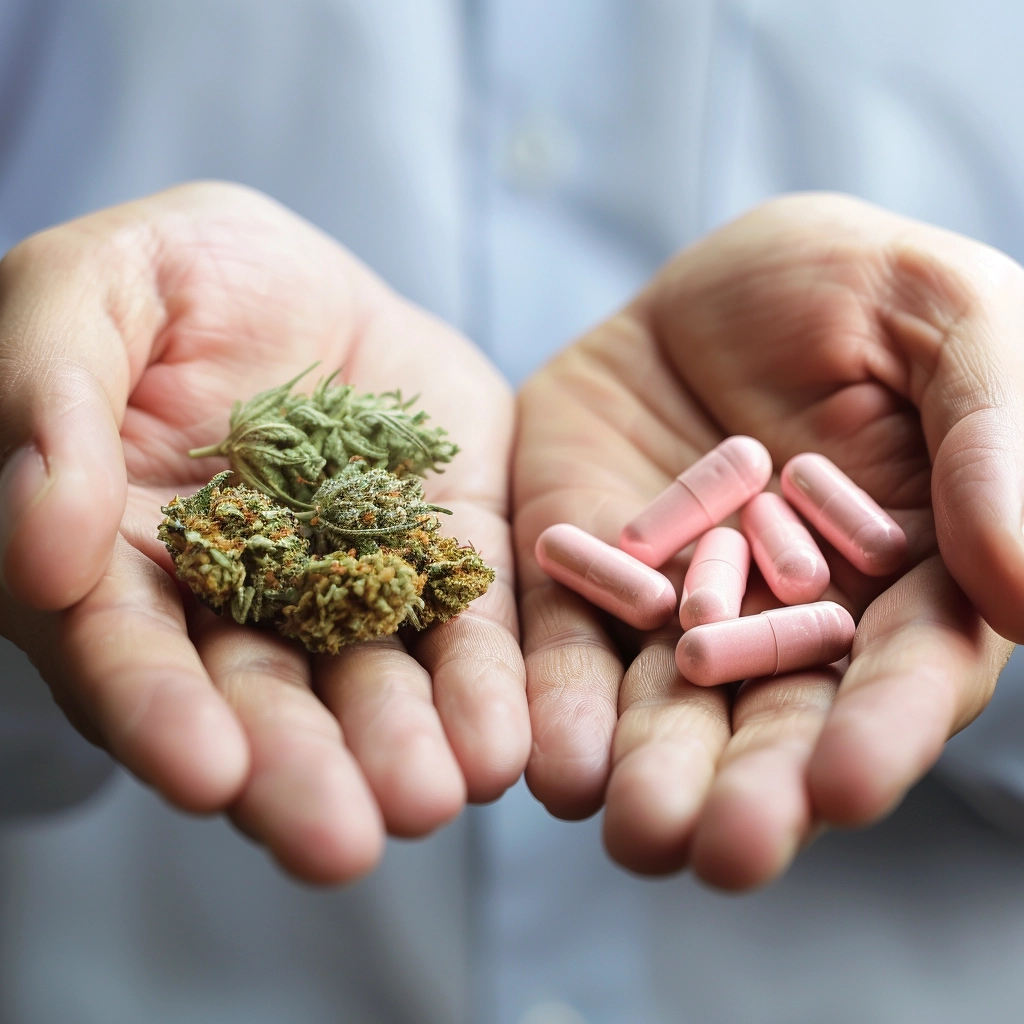
Table of Contents
ToggleUnveiling the Potential: Cannabis in the Clinical Spotlight
The resurgence of interest in medical cannabis has spurred a wave of clinical investigations, seeking to demystify the plant’s pharmacological properties and therapeutic utility. Comparative studies, in particular, offer a lens through which to view cannabis in relation to established pharmaceutical agents, examining efficacy, safety, and patient outcomes across a spectrum of conditions.
Pain Management: A Paradigm Shift
Chronic pain stands as a colossal challenge in healthcare, affecting millions globally and often eluding the grasp of conventional treatment. Comparative studies on cannabis and opioids for pain management have illuminated cannabis’s potential to offer effective relief with a markedly lower risk profile. Patients report significant reductions in pain intensity, improved quality of life, and, crucially, a decreased reliance on opioids, highlighting cannabis’s role in addressing the opioid crisis.
Neurological Disorders: Lighting the Way
In the realm of neurological disorders, the comparative efficacy of cannabis and traditional medications has been a focal point of research. Studies on epilepsy have showcased CBD-rich cannabis extracts as a beacon of hope for treatment-resistant epilepsy, with some patients experiencing dramatic reductions in seizure frequency. This stands in contrast to the often limited efficacy and substantial side effects associated with standard antiepileptic drugs, positioning cannabis as a potential game-changer in neurology.
Mental Health: A Complex Landscape
The exploration of cannabis in mental health treatment, particularly for anxiety and depression, presents a nuanced picture. Comparative studies suggest that for certain individuals, cannabis may offer symptomatic relief where conventional antidepressants and anxiolytics fall short. However, the complexity of mental health disorders, coupled with cannabis’s biphasic effects—whereby low doses may alleviate while high doses exacerbate symptoms—calls for a cautious, personalized approach.
Navigating Challenges: The Road to Integration
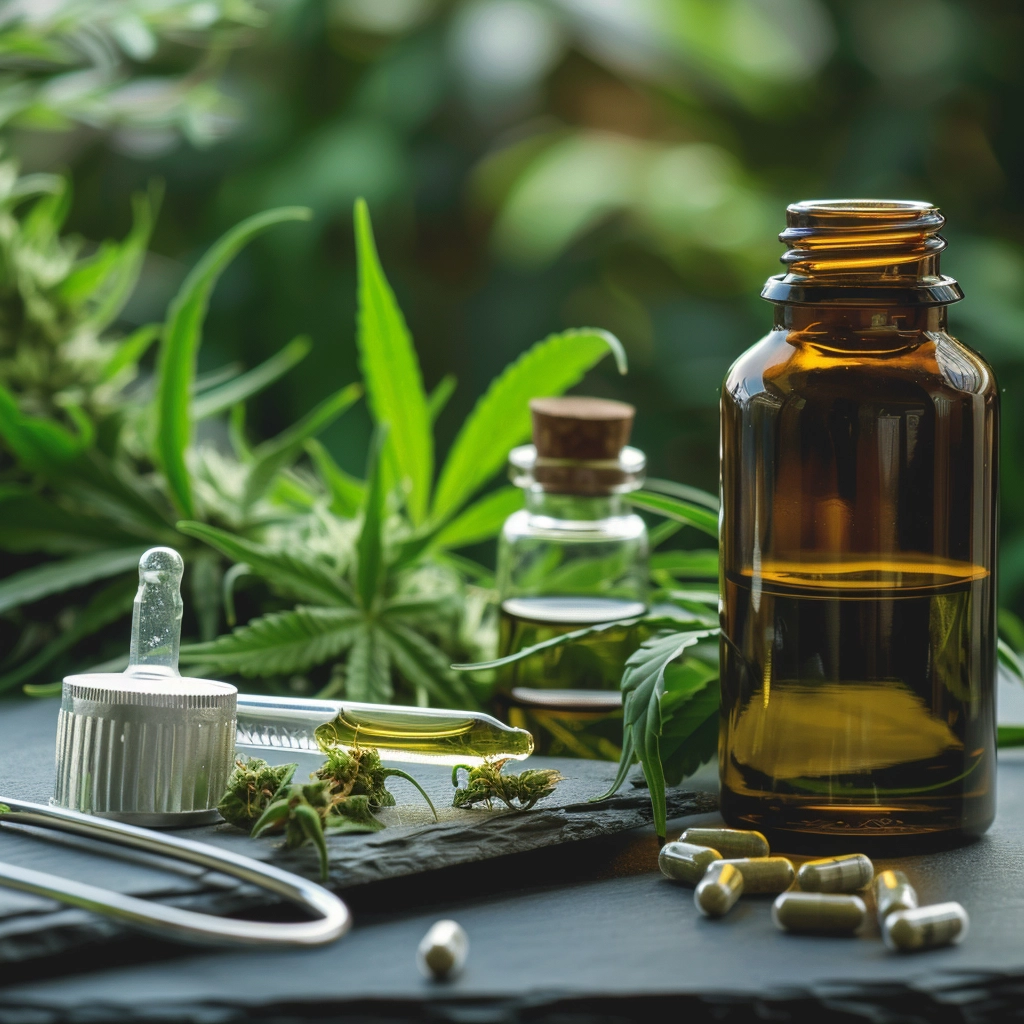

The journey towards integrating medical cannabis into mainstream healthcare is fraught with challenges. Comparative studies, while invaluable, also underscore the variability in cannabis’s effects, the need for standardized dosing, and the importance of patient education and monitoring.
Standardization and Quality Control
One of the most pressing challenges is the lack of standardization in cannabis products, which complicates direct comparisons with conventional medications. Ensuring consistent quality, potency, and purity is essential for both the integrity of research and the safety of patients.
Regulatory and Legal Hurdles
The legal status of cannabis remains a significant barrier to comprehensive research and clinical use. Regulatory frameworks vary widely, often limiting access to quality cannabis for both research and therapeutic purposes. Advancing the integration of cannabis into healthcare necessitates legal reform and harmonization of regulations across jurisdictions.
Educating Healthcare Professionals
A critical component of integrating cannabis into traditional medicine is the education of healthcare professionals. Familiarity with the latest research, understanding the nuances of cannabis pharmacology, and navigating the legal landscape are all crucial for practitioners to effectively incorporate cannabis into their clinical practice.
Looking Forward: Towards an Integrated Future
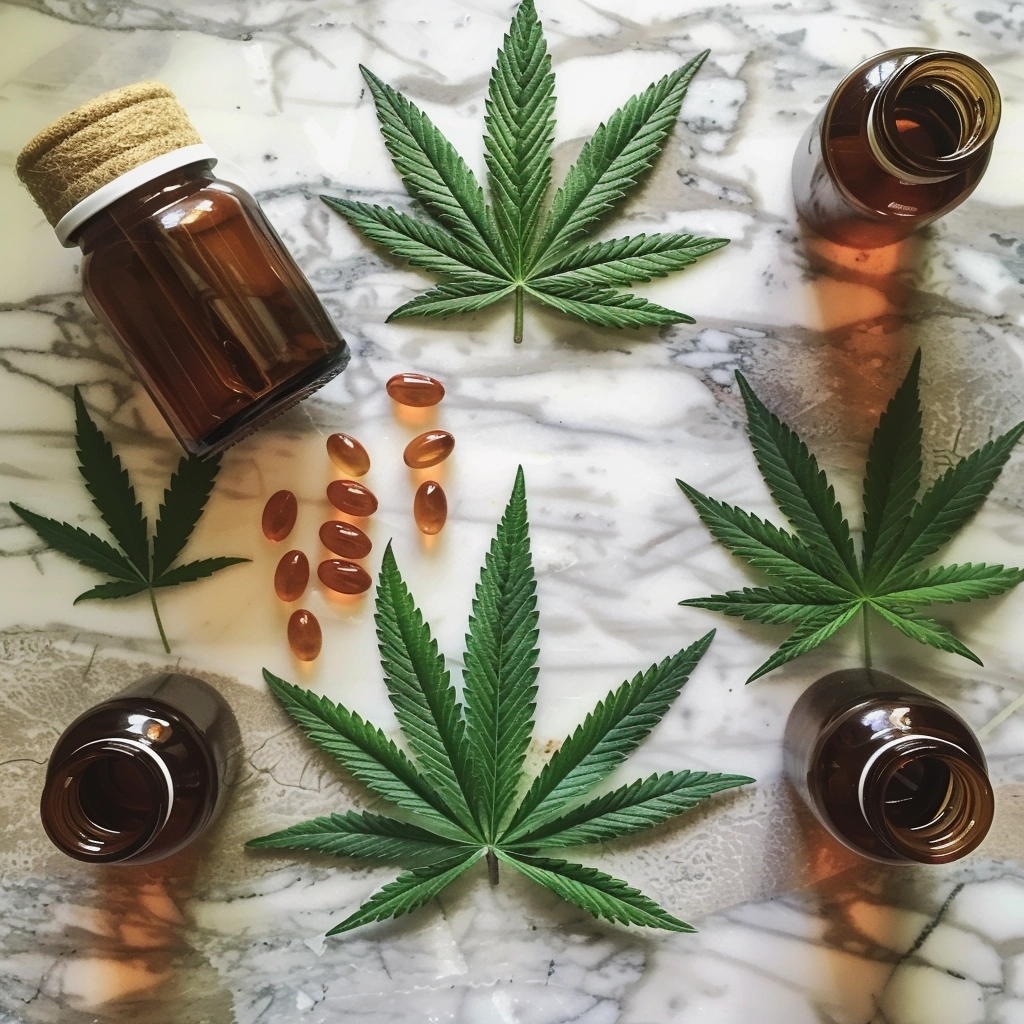
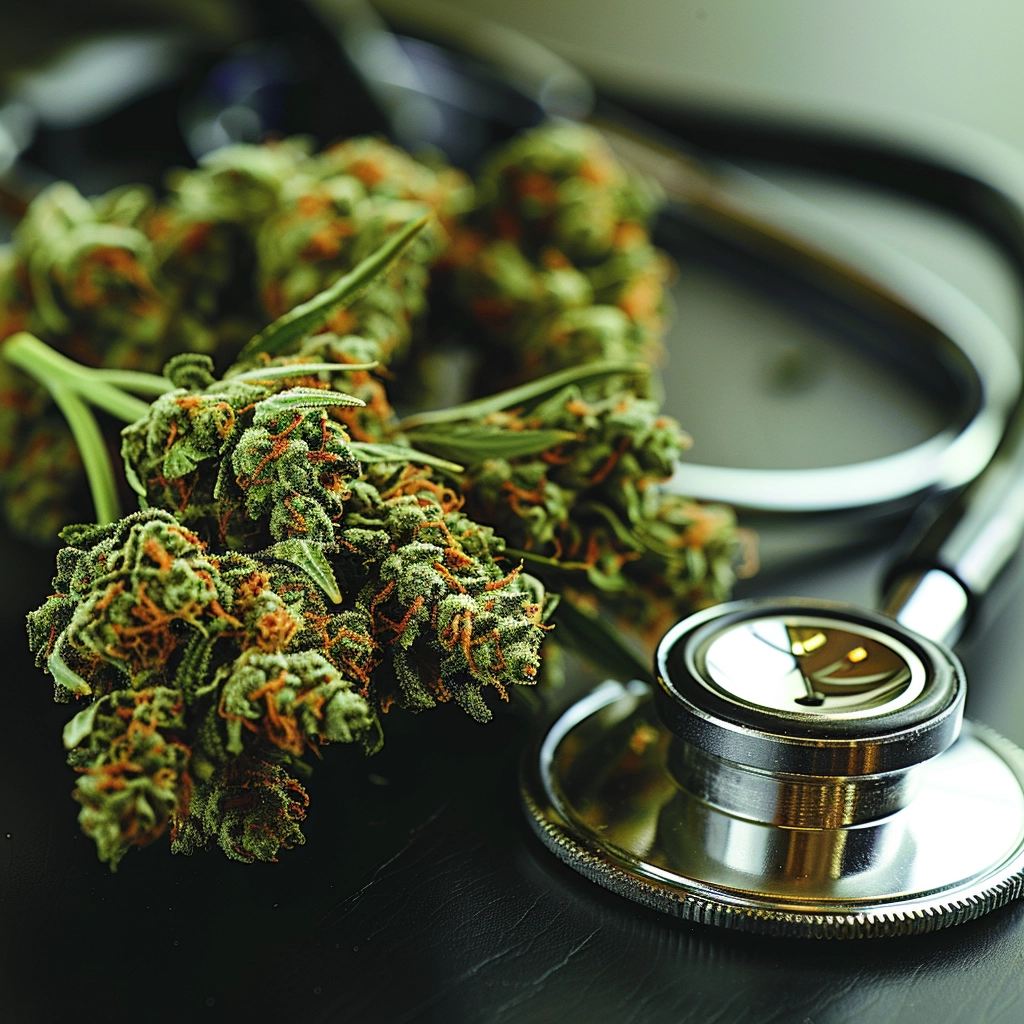
The comparative studies on cannabis versus conventional medications herald a new era of healthcare, where the natural and the synthetic coalesce in the service of healing. As research continues to illuminate the therapeutic potential of cannabis, the vision of a healthcare system that embraces the full spectrum of healing modalities becomes increasingly tangible. In this future, the judicious use of medical cannabis, grounded in scientific evidence and clinical wisdom, has the potential to enhance patient outcomes, mitigate the risks associated with conventional medications, and pave the way for a more holistic, patient-centered approach to healthcare. In the grand narrative of medicine, cannabis emerges not as a panacea but as a powerful ally, offering new hope and healing possibilities for patients worldwide.
FAQ: Medical Cannabis vs. Conventional Medications
How does medical cannabis compare to opioids in pain management?
Medical cannabis has been shown to effectively manage pain with a lower risk of dependency and fewer side effects compared to opioids. Studies indicate that patients using cannabis for pain may reduce their opioid dosage, highlighting cannabis’s potential role in addressing the opioid crisis.
Can medical cannabis replace antiepileptic drugs for epilepsy treatment?
For some patients, particularly those with treatment-resistant forms of epilepsy, CBD-rich cannabis extracts have demonstrated significant efficacy in reducing seizure frequency, offering an alternative for those who do not respond well to traditional antiepileptic drugs. However, it’s important to consult a healthcare professional before making any changes to epilepsy treatment.
Is cannabis effective for treating mental health conditions like anxiety and depression?
Comparative studies suggest that cannabis, particularly CBD, may offer symptomatic relief for certain individuals with anxiety and depression, where conventional treatments have been ineffective. However, the effects of cannabis can vary widely, and high doses may exacerbate symptoms, underscoring the need for personalized treatment approaches.
What are the main challenges in comparing medical cannabis to conventional medications?
Challenges include the lack of standardization in cannabis products, making consistent dosing and quality control difficult. Additionally, legal and regulatory barriers limit research and access to medical cannabis, complicating direct comparisons with conventional medications.
How can the quality and consistency of medical cannabis be ensured?
Advancements in cultivation, extraction, and manufacturing processes are crucial for ensuring the quality and consistency of medical cannabis. Regulatory frameworks that enforce stringent quality control standards and lab testing are also essential for patient safety and effective treatment.
What legal considerations should patients be aware of when considering medical cannabis?
Legal considerations include the varying laws and regulations regarding medical cannabis use, possession, and access across different regions. Patients should familiarize themselves with their local laws and obtain medical cannabis through authorized channels, following a healthcare professional’s recommendation.
How can healthcare professionals stay informed about medical cannabis?
Healthcare professionals can stay informed through continuous education, including attending conferences, participating in workshops, and reading up-to-date research on medical cannabis. Engaging with professional organizations focused on cannabis medicine can also provide valuable resources and networking opportunities.
Can medical cannabis be used in conjunction with conventional medications?
In some cases, medical cannabis can be used alongside conventional medications, but it’s vital to consult healthcare providers to avoid potential drug interactions. A tailored, integrated approach to treatment, considering all medications a patient is taking, ensures the best outcomes.
These FAQs aim to address common inquiries regarding the comparison of medical cannabis to conventional medications, highlighting the potential, challenges, and considerations in integrating cannabis into modern medical practices.
Kannabu's Online Cannabis Educational Resources
Read Educational Online Guides and Articles to Learn About Cannabis
- Navigating the Green Path: CBD vs. THC in Medical Treatment
- The Aromatic Architects of Healing: The Role of Terpenes in Medical Cannabis
- Navigating the Green Frontier: Clinical Trials on Cannabis and Its Effects
- Charting the Green Path: Cannabis Dosing Guidelines for Medical Use
- The Endocannabinoid System: Nature’s Balancing Act in Human Health
- A Green Horizon: Cannabis as an Alternative to Opioids
- Navigating the Mind’s Garden: Cannabis and Mental Health Treatment
- Unlocking the Green Code: Exploring the Genetic Diversity and Pharmacological Promise of Cannabis
- Weaving Green into Gold: The Integration of Medical Cannabis into Traditional Medicine
- The Therapeutic Promise of Medical Cannabis: Exploring the Spectrum of Cannabinoids
- From Young to Old: The Compassionate Embrace of Medical Cannabis in Pediatric and Geriatric Care
- Green vs. Traditional: Navigating the Crossroads of Medical Cannabis and Conventional Therapies
- Beyond the Pain: The Comparative Effectiveness of Cannabis in Chronic Pain Management
- Unlocking Cannabis’s Secrets: The Journey Through Cannabinoid Pharmacokinetics and Pharmacodynamics
- Green Paws: Navigating the Frontier of Medical Cannabis in Veterinary Care
- Unlocking Relief: The Transformative Role of Medical Cannabis in Pain Management
- Harnessing Harmony: Medical Cannabis and the Battle Against Autoimmune Disorders
- Embracing the Night: How Medical Cannabis Transforms Sleep Management
- Turning the Tide: Cannabis as a Catalyst for Relief and Recovery in Nausea and Appetite Stimulation
- Illuminating the Neural Pathways: The Transformative Role of Medical Cannabis in Neurological Conditions
- Harnessing Harmony: Medical Cannabis and the Battle Against Autoimmune Disorders
- A Clearer View: Medical Cannabis in the Treatment of Glaucoma
- Breaking Boundaries: Cannabis and the New Frontier in Epilepsy and Seizure Control
- Revolutionizing Relief: Medical Cannabis in Cancer Symptom Management
- Navigating the Storm: Cannabis as a Beacon of Hope in Multiple Sclerosis Treatment
- Cannabis: A Natural Respite for Arthritis and Joint Pain
- Healing from Within: The Role of Medical Cannabis in Treating Gastrointestinal Disorders
- Healing Invisible Wounds: Cannabis in PTSD and Trauma Treatment
- Balancing the Mind: The Potential of Medical Cannabis in Bipolar Disorder and Mood Stabilization
- Illuminating the Mind: Cannabis in the Treatment of Alzheimer’s and Neurodegenerative Diseases

